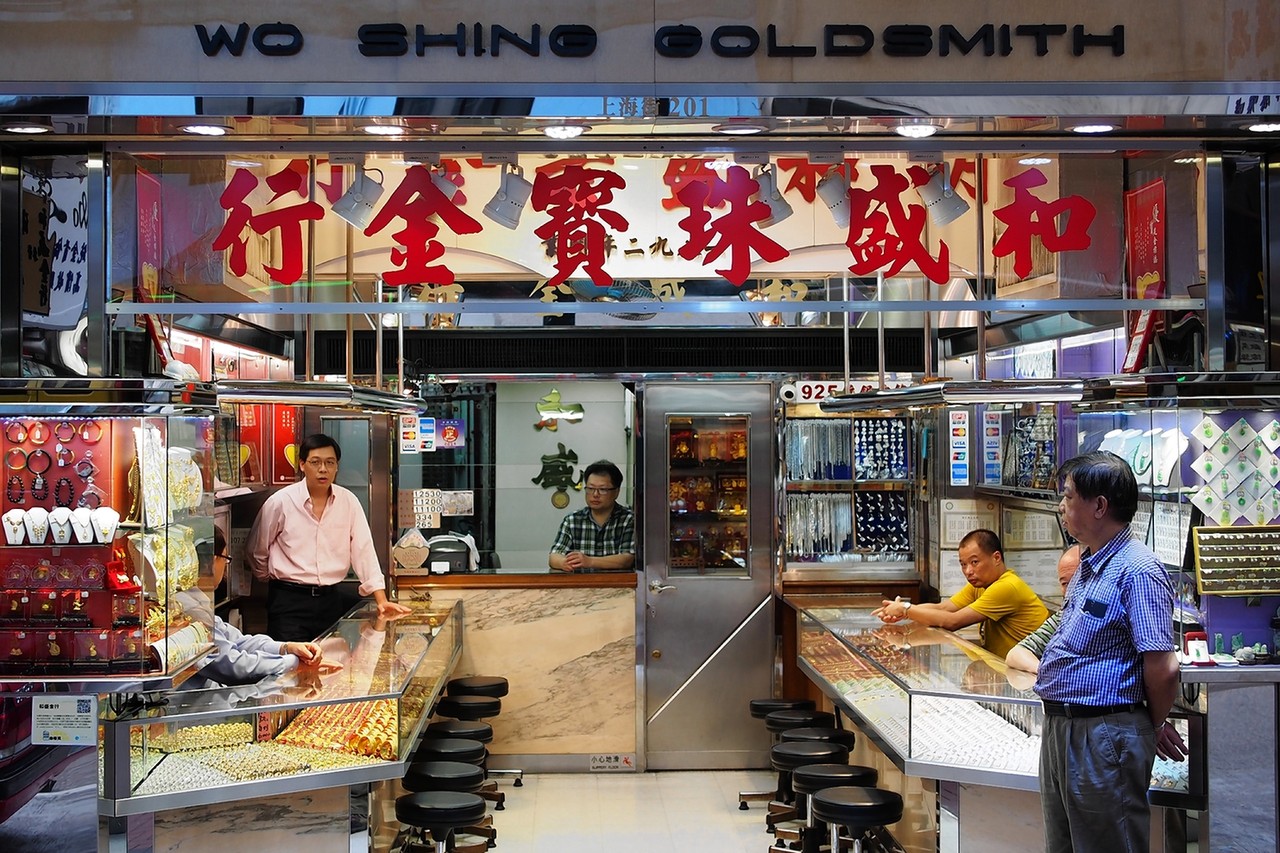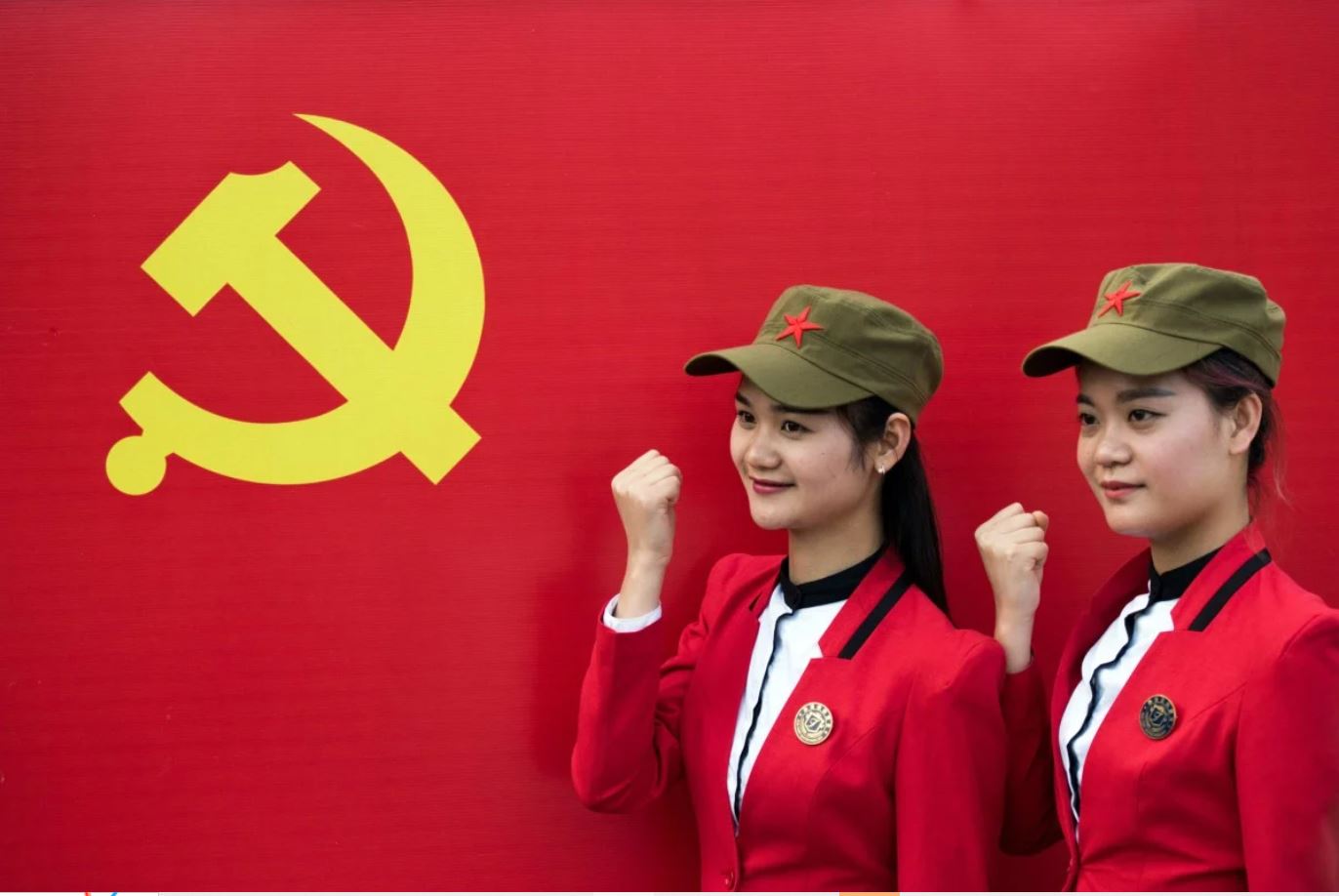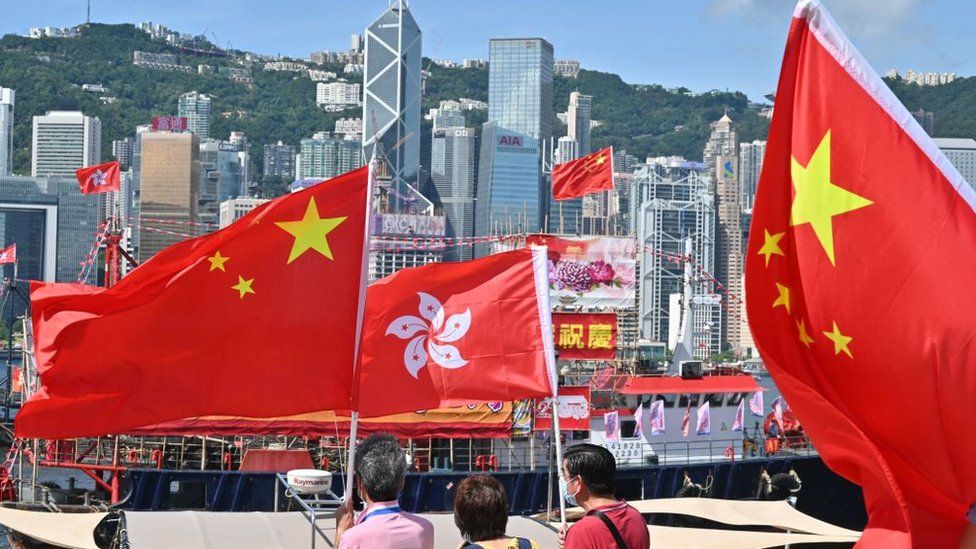CNI Article
14 May 2024
On April 29, 2024, the Hong Kong-based South China Morning Post wrote: “Chinese consumers are increasing their appetite for gold, seeking to protect their assets amid a volatile stock market, a depreciating yuan and, property doldrums.”
China is the world’s largest gold producer. But the demand has far outstripped supply leading to imports. Clearly, the common Chinese are losing faith in their economy. And, that takes us to question what’s wrong with China. The answer may be found in the dramatic meltdown of Hong Kong’s status as a global financial and commercial hub.
The former British colony was handed over to China in 1997. Under British rule, the islanders enjoyed a high degree of civil liberties which were crucial for its prosperity. During its inclusion with China, the Chinese Communist Party (CCP) promised to ensure the political freedom of the islanders for fifty years under a framework known as “one country, two systems.” Not to mention that mainland China does not enjoy such freedoms.
The situation started changing dramatically after President Xi Jinping became general secretary of CCP in 2012 and President of the country in 2013. A severe clampdown on free speech was ordered in Hong Kong. Initially, media and educational institutes went under heavy censorship. Then Beijing went for changing the electoral system inviting huge protests. The island was rocked by a wave of sit-in demonstrations, and marches beginning September 2014. Students were at the forefront of the peaceful “Occupy movement” that finally ended in December in the face of the ruthless use of force by Beijing.

Since then, Hong Kong has been living under the iron rule of China. Many newspapers were closed. Editors landed up in jail or were silenced. In 2020, Beijing imposed a draconian national security law in Hong Kong that gave authorities sweeping powers to arrest pro-democracy activists, advocates, media persons, social influencers etc. Most critically, the new law curbed the voting rights of the islanders. The press freedom was reduced to near zero. Before the Xi era, the South China Morning Post was one of the most respected dailies in Asia. Today, it merely toes the line set by CCP.
But that did not stop Beijing from increasing the stranglehold. In March this year, the CCP brought more lethal provisions over and above the National Security Act to virtually reduce Hong Kong into an open jail. The new act, known as Article 23, empowers Beijing to crack down on all forms of dissent - on the grounds of treason, espionage, sedition and external interference in Hong Kong’s internal affairs - with sentences ranging up to life imprisonment.
It is anybody’s guess how a totalitarian state can use draconian legal provisions. China loved Hong Kong for its money. But it hated the freedom the islanders enjoyed. Beijing will not stop until it crushes the liberal spirit of the islanders. On the flip side, the oppression of civil liberties played a significant role in China’s recent economic decline. At a time when emerging markets in Asia are booming, the Chinese share market is struggling. China’s CSI300 index is ruling 31% lower than the February 2021 high. On the contrary, India’s NIFTY50 index is at a historic high.

World history suggests some countries made progress under dictatorship, monarchy or one-party rule when they were abysmally poor. It is no justification for autocratic rules nor did all dictators make their country richer. China was abysmally poor under Mao Zedong’s authoritarian rule. However, Deng Xiaoping used the same single-party rule to pursue Barbie doll economics to alleviate poverty and catapult the country towards a growth path. From barely $347 in 1990, the per-capita income of the Chinese has reached nearly $13000, above the world average.
And, that puts them face to face with another piece of lesson from history. As people get richer, they demand personal and political freedom. This is why, the democratic West adopted more democratic means of governance once they crossed a per-capita of $2500 in the last century. The relationship between growth and personal liberty at a higher per-capita level is non-negotiable. That is why Deng proposed a political reform as a follow-up action to economic reforms. Deng was Chairman of the Central Advisory Commission till 1987. He died in 1997. CCP allowed discussion on political reforms for another decade and, then Xi turned the wheel back. China started pursuing Mao’s total control doctrine.
This is the source of China’s recent instability. Look at Hong Kong. In 2020, the US imposed sanctions on the top leadership of the city, for violating the freedom of expression of the islanders. After China brought in Article 23 in March 2024, US Secretary of State Antony Blinken announced a plan to impose “new visa restrictions on multiple Hong Kong officials for the intensifying crackdown on rights and freedoms.”

The sanction is a smaller part of the problem. The bigger issue is: Can a global financial hub operate under such a restrictive environment? Can you expect investment bankers at Wall Street in New York to keep silent on the American government and its policies? The answer is an emphatic ‘NO.’ They study government policies and make decisions on keeping investments in America or taking them to any other destination. A totalitarian regime that suppresses dissent can put bans on taking investments out or raising money from abroad. Didn’t Beijing force Jack Ma’s Ant Group to cancel its $37 billion IPO in 2020?
The realisation has dawned on the global corporate and financial circle. In December 2023, Moody's downgraded the outlook on both China and Hong Kong's credit ratings from stable to negative. Before that, in October 2023, The Wall Street Journal wrote: “International companies began trickling out of Hong Kong a few years back, uneasy about the financial hub’s tightening ties to mainland China. That first smattering of departures is now turning into a broad retreat involving banks, investment firms and technology companies. The number of U.S. companies operating in the city has fallen for four years in a row, by Hong Kong’s count, hitting 1,258 in June 2022, the fewest since 2004.” Chinese companies now outnumber the foreign entities in Hong Kong.




